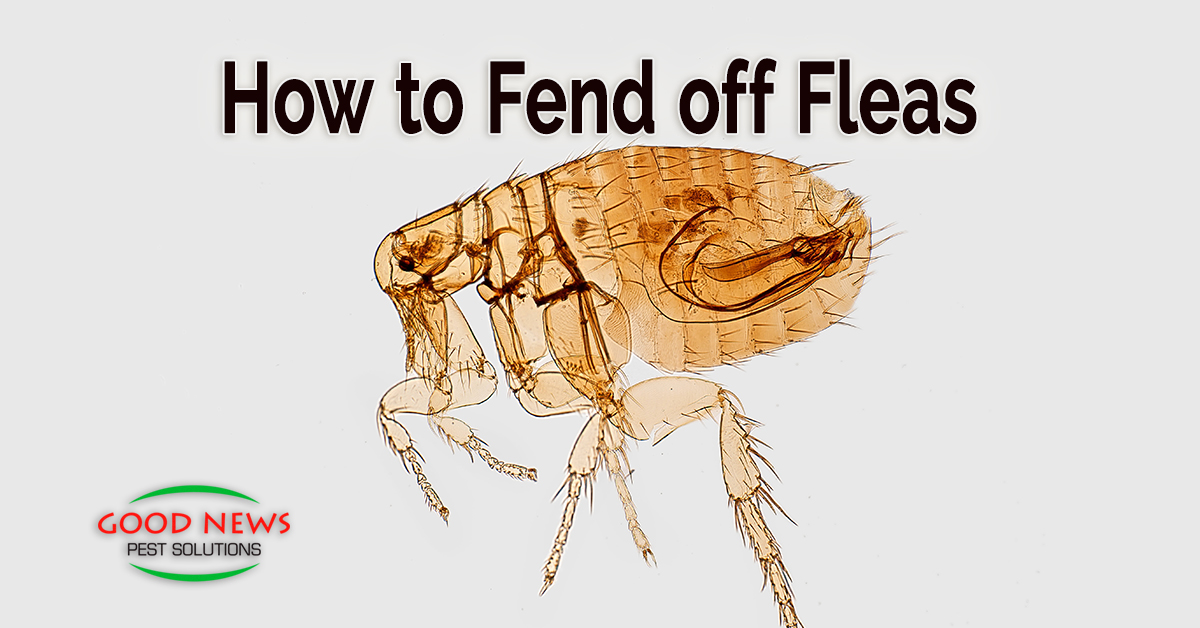
How to Fend off Fleas
As we begin transitioning from unseasonably warmer spring and winter temperatures to our all too seasonal warm and soon to be rainy summer months, we and our animals will spend a bit more time out of doors. Especially if you’re planning to go camping or another vacation trip, you’ll want to be on the lookout for summer insects.
Of course, the number one concern for moist summer months across the Gulf Coast of Florida is our unofficial state insect – the mosquito. We’ll talk about them plenty in a few weeks. Technically, rainy season started this week but it gets into full swing as we head into June and July.
For today, we want to talk about a different biting insect – the annoyingly energetic flea.
Jumping Off Point
Thanks to the wonderful beauty of our subtropical weather, there isn’t really a time when fleas in Florida hibernate like their northern family members. But the summertime, when it’s hottest and most humid, is when they are the most active.
Although fleas do bite humans, you’re probably most likely to spot them on your dog or cat. If you see your household pet scratching and scratching and scratching, that’s not a good sign. Even if it’s not fleas, you should take the animal to the vet to be checked.
The same holds true if you see patches of missing hair or red marks on the animal’s skin. It could be fleas, it could be mange – either way, get it checked.
Fleas usually target a dog’s hindquarters. For cats, it’s around the head and neck. If you see your pet scratching or nipping, take a closer look. Fleas are about a tenth of an inch long with black bodies, and when you disturb them, they tend to jump. They can vault long distances (for their size), but often will just pop from one warm body to the next – including yours.
Oh, and if you see one flea, there’s almost certainly another dozen to a hundred in your home.
Staying Abreast of Things
Unless you’re sending your pets to roam through the forest or swamps, the source of most fleas in our area is wild animals who carry them into your yards, at which point they fall or jump off and then get brought in by our pets.
Unfortunately, no matter how they get into your house, once you have an infestation you’ll need professional help. Yes, deep cleaning your linens and pet beds will help, as will vacuuming. But that, unfortunately, can lead to a false sense of security.
Fleas tend to lay their eggs not only in your pet’s fur but also deep within carpet fibers, cushions, and in upholstery where a standard vacuum or sanitizing wipe won’t clear them up. In most cases, even if it appears your flea problem has abated, it will come back with a vengeance when the eggs hatch.
Good News Pest Solutions treats both the adult fleas and the product of any potential eggs. Our residual treatment cannot penetrate the eggs, but once the fleas hatch, they die within a short time after exposure.
If you’d like more details, or to learn about some of our other safe-for-the-family pest solutions, please just give us a call!
Proudly Serving
Sun City Center, Ruskin, Palmetto, Parrish, Ellenton, Bradenton, Anna Maria, Holmes Beach, Bradenton Beach, Longboat Key, Lakewood Ranch, University Park, Myakka City, Sarasota, Siesta Key, Osprey, Nokomis, Casey Key, Venice, Englewood, North Port, Port Charlotte, Punta Gorda, Arcadia
Things You Can Do
Pay Your Bill Online
Leave Us a Review
Request a Free* Termite Inspection
Stop Mosquito Bites
Get Rid of Rodents
Get a Termite Damage Warranty
Get Pest Control for Your Attic
Get Pest Control for Your Business Request Prayer
Corporate Address
1080 Enterprise Court, Ste A
North Venice, FL 34275
Call Now: (941) 412-9610
Text: (941) 412-9610
Fax: (941) 412-0080
